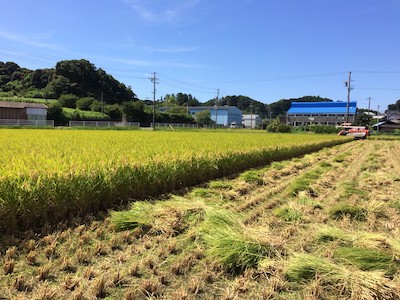Partnership with sustainable hydrocarbon leader Neste supports launch of renewable olefin feedstock-based additives waxes, flame retardants.
December 30, 2019

Clariant has teamed up with renewable hydrocarbon producer Neste to offer a wide range of additives based on mass balance certified ethylene and propylene from renewable feedstock, which reliably deliver both high performance and sustainability. Neste’s renewable hydrocarbons are based on sustainably produced bio-based raw materials, such as waste and residue oils, so they help in reducing consumption of fossil resources, and fossil-based carbon emissions to the atmosphere.
|
Rice bran wax is a key raw material for sustainable additives from Clariant. |
As an outcome of this cooperation, Clariant is launching new ‘Terra’ designated additives solutions, like-for-like drop-ins, performing precisely as fossil-based equivalents with no need to retest, renew registrations or to modify production processes or equipment and carrying a mass balance certification:
These include the Exolit OP Terra range of renewable-based halogen-free flame retardants with six new product launches. These halogen-free flame retardants are the first to be based on renewable sources and to be proven not to interfere with the recycling process. They achieve UL 94 V-0 rating with stable flame retardancy even after multiple recycling processes. Application areas include electronic and electrical equipment, and automotive components.
Clariant has also introduced the Licocene Terra range of waxes for plastic processing and use in hot melt adhesives that allow bonding and debonding and improve the recyclability of post-industrial and post-consumer waste. For example, post-consumer waste carpets can be recycled cradle-to-cradle at very high material yields and significantly reduced energy.
Among the five new Licocene Terra products based on renewable feedstock, two are specifically targeting plastics processing: Licocene PE 4201 Terra, a lubricant for polyolefins and nucleating agent for EPS; and Licocene PP 6102 Terra, an external lubricant for PVC extrusion and dispersing agent for pigments and additives in masterbatches.
In addition to its Terra range, Clariant has introduces the Vita range of six rice bran wax-based solutions for formulators of high-performing engineering plastics, bioplastic compounds and masterbatches. Based on non-food competing feedstock, these are the first products to carry Clariant’s Vita designator for products from natural origin with at least 98% renewable carbon index (RCI) renewable content.
Among the Vita range, Licocare RBW 360 TP Vita is a multifunctional additive that provides a special combination of lubrication and nucleation in engineering plastics, particularly in polyamides. As a result of its chemical structure, Licocare RBW 360 TP Vita shows excellent thermal stability, low volatility and outstanding color stability. Application tests by Clariant in polyamide (PA) 66 showed reduction of cycle times by 71% per molded part when adding Licocare RBW 360 TP Vita to the neat polymer.
Clariant has also introduce a dispersing agent Ceridust 1060 Vita – also based on rice bran wax – that enables excellent pigment dispersion in plastic parts made of polar engineering thermoplastics such as {A, polyesters, TPU or biopolymers such as polylactic acid (PLA). It enables outstanding color strength at equal pigment dosing, reduced surface blooming and cleaner, brighter colors.
Stephan Lynen, Head of Clariant Business Unit Additives, comments: “We need to create better value cycles with minimum resource intensity and maximum resource reuse. Vast use of fossil resources triggers CO2 emissions and climate change. With current forecasts predicting as much as 20% of the world’s oil production being used to make plastics by 2050, we need to reduce resource intensity by enabling more sustainable material choices – like increasing the use of renewables and natural, non-food competing feedstock. To offer this we need partnerships along the value chain. With Neste we have found a partner who is equally committed to creating a more sustainable future. Together we are now in the position to enable brand owners to deliver on their sustainability commitments and offer tangible options for consumers to switch to climate-friendlier alternatives.”
About the Author(s)
You May Also Like





